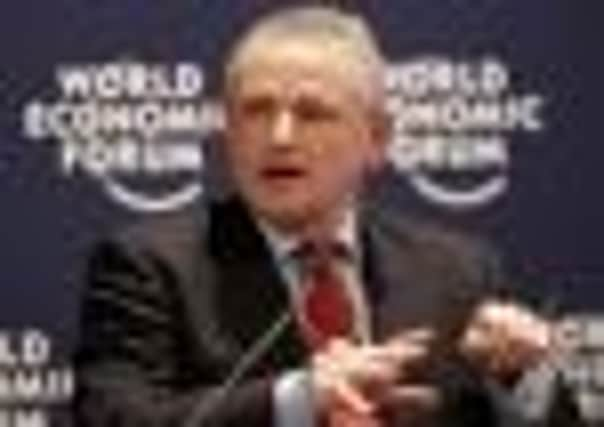Aviva stunned as shareholders vote against executive pay deal


While the 54 per cent vote against the remuneration report is not binding, the company is already facing calls to meet major shareholders to revise its pay packages for directors.
The outcome, the latest in a series of high-profile oppositions by investors, represents only the fourth time a FTSE 100 company has lost a vote on remuneration policy since it became mandatory ten years ago.
Advertisement
Hide AdAdvertisement
Hide AdThe humiliating defeat came despite chief executive Andrew Moss trying to head off shareholder concerns earlier this week by waiving his 2012 salary increase which would have taken his base pay past the £1 million mark.
Aviva chairman Lord Sharman yesterday apologised to shareholders at the firm’s AGM for ignoring their views when setting executive pay.
“We recognise that a number of shareholders feel that we have not reflected their views, and overall shareholder value, in the judgments we made on remuneration and for this the board and I apologise.”
Scott Wheway, chairman of the insurer’s remuneration committee, also admitted that “we could and should have done more to engage with shareholders.
“Aviva won’t be taking the same approach to recruitment awards again,” he added.
But private investor Philip Meadow-croft called for directors including Moss to quit, saying they had presided over a 90 per cent rise in total director pay between 2007 and 2011 despite a 62 per cent fall in Aviva’s share price.
“The figures are evidence enough to condemn your abject performance without reservation,” he said at the meeting in London.
As well as Moss waiving a 4.8 per cent pay increase this year, Aviva also said it was launching a review into whether it over-compensates newly-recruited executives for missing out on bonuses due in their previous jobs. That move is thought to have been prompted by concern over a £2.5m cash and shares “golden hello” package for former Standard Life executive Trevor Matthews when he joined the company last year.
Advertisement
Hide AdAdvertisement
Hide AdAlan MacDougall, managing director of shareholder advisory body Pirc, which advised investors to vote against the company’s “excessive” pay deals, said he believed the company would now look to mitigate the impact of the vote and consult with investors over changes to pay arrangements.
“The company needs to make good on its commitments to talk to shareholders and revise its approach in the future,” he added.
A consultation by Business Secretary Vince Cable on proposals to make votes on some elements of pay packages binding – rather than advisory as is currently the case – closed last week.
The biggest revolt over executive pay at a Footsie company was the 90 per cent vote against RBS in 2009. In 2003, 51 per cent voted against GlaxoSmithKline’s JP Garnier and 59 per cent went against the pay package of Shell’s Peter Voser in 2009. More than 25 per cent of shareholder votes were against the remuneration report at yesterday’s AGM of Premier Foods, the firm behind brands such as Hovis and Mr Kipling.